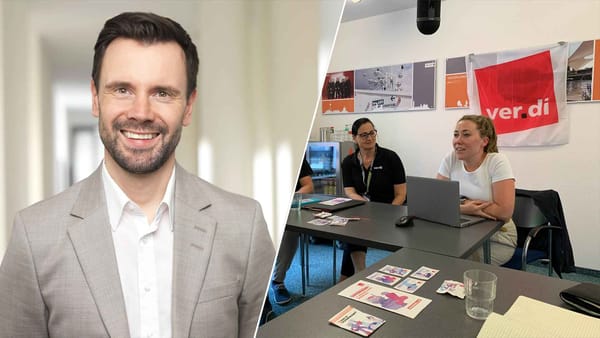ver.di Demands too "Generic", game Association says



Yesterday, ver.di and the Game Devs Round Table formulated six demands towards a better games industry for game workers. In a statement to GamesMarkt, the game association has now responded. Managing Director Felix Falk says the demands "fail to recognise how different the realities are for the individual games companies in Germany."
Yesterday, united service union ver.di has made public demands for workers’ rights in Germany in the form of the game worker group Game Dev Round Table at ver.di. Now, the German industry association game has commented on the demands in response to a GamesMarkt query.
Felix Falk, Managing Director of game, thinks the demands of the game workers group within the union are too broad and emphasises dialogue between workers and company leadership. “Good working conditions are essential for the games industry when it comes to attracting skilled labour. Companies know that they have to be competitive in order to attract and retain the games experts that are desperately sought after in many places. The generic demands of ver.di do little to help. For example, they fail to recognise how different the realities are for the individual games companies in Germany. Instead of uniform trade union ideas, we therefore always need the dialogue already practised in the individual companies in order to find suitable and attractive solutions for all sides that create good working conditions and at the same time maintain the competitiveness of the companies”, Falk says.
Never miss anything from the German, Swiss and Austrian games industry again: subscribe for free to our Daily newsletter and get all news straight to your inbox.
German original statement of game: „Gute Arbeitsbedingungen sind für die Games-Branche im Werben um Fachkräfte essentiell. Die Unternehmen wissen, dass sie hier konkurrenzfähig sein müssen, um die vielerorts händeringend gesuchten Games-Expertinnen und -Experten zu gewinnen und zu halten. Die generischen Forderungen von ver.di tragen wenig bei. Sie unterschlagen beispielsweise, wie unterschiedlich die Realitäten für die einzelnen Games-Unternehmen in Deutschland sind. Statt einheitlicher Gewerkschaftsvorstellungen braucht es daher immer den bereits praktizierten Dialog in den einzelnen Unternehmen, um für alle Seiten passende und attraktive Lösungen zu finden, die gute Arbeitsbedingungen schaffen und gleichzeitig die Wettbewerbsfähigkeit der Unternehmen erhalten.“